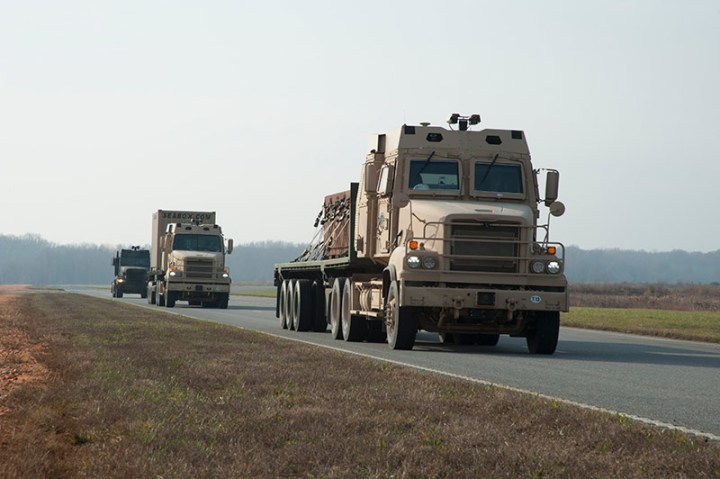
Called dedicated short-range communications, the system allows the trucks in a convoy to talk with each other and with sensors along the road. The system communicates location, driving conditions, and speed. While TARDEC has been testing the system for several years, this marks the first test on a public roadway.
Michigan is a good place for this test to happen as it already has the infrastructure in place for connected cars. Toyota recently expanded their connected car test in the state, while startup Faraday Future applied for the necessary permits earlier this month. State government is also showing a willingness to bet on connected and driverless car technologies too, having passed a bill authorizing self-driving cars in late May.
Indeed, the very sensors that TARDEC is using for the test are being supplied by MDOT, the state’s transportation agency. Other sensors — which the Army won’t be using for its own tests — are also being deployed throughout the southeastern part of the state.
It should be mentioned that the system at least for now isn’t going to drive these truck convoys themselves: The Detroit News describes the effort as a way for the convoy’s member vehicles to “sense brake lights, upcoming curves in the road, bridge heights, lane closures, and other potential obstacles.”
Actual autonomous control is further down the road, TARDEC says. Initially it would involve a lead truck controlling the speed of the trucks behind it, and would possibly expand to other features as bugs and kinks are worked out.


